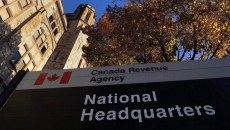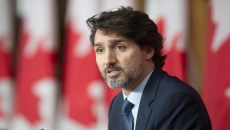The federal government tweaked its housing and infrastructure plans in Monday's budget, but held back on an overhaul.
In the first budget in more than two years, Finance Minister Chrystia Freeland topped up the Liberals' 10-year, $40-billion housing strategy with an additional $2.5-billion commitment.
Some 60 per cent of that will go toward construction of 4,500 new units under the so-called Rapid Housing Initiative, which seeks to provide vulnerable Canadians with affordable homes.
The budget's plan to build or repair 35,000 units in total — with the help of a reallocated $1.3 billion in existing funding — makes only a small dent in the more than 1.6 million Canadians who "live in core housing need," the budget states.
"There's more money on the table for affordable housing. Is that a major change? I don't think so," said Geneviève Tellier, a political science professor from the University of Ottawa.
"It's not a big amount in the sense that the needs of Canadians are much higher than that."
Live from the House of Commons: @CAFreeland, the Deputy Prime Minister and Minister of Finance, is introducing our government’s plan to beat this virus and build back better. Tune in now to learn more about #Budget2021: https://t.co/G7FYXYREse
— Justin Trudeau (@JustinTrudeau) April 19, 2021
The 739-page document also reiterates an eight-year, multibillion-dollar pledge from February for public transit projects ranging from new subway lines to electric buses.
Prime Minister Justin Trudeau promised cash-strapped cities $14.9 billion dollars in permanent funding for transit, though most of the money won't start flowing until later in the decade.
About $6 billion will be made available to municipalities right away for projects that are ready to go, according to the government, while the remainder will go into a $3-billion per year fund that can will be doled out on a project-by-project basis starting in 2026-27.
The budget further sets aside $23 million over four years for Infrastructure Canada to conduct what it calls the country’s first-ever national infrastructure assessment, partly to identify next steps toward a long-discussed, never-developed high-frequency rail link between Toronto and Quebec City.






